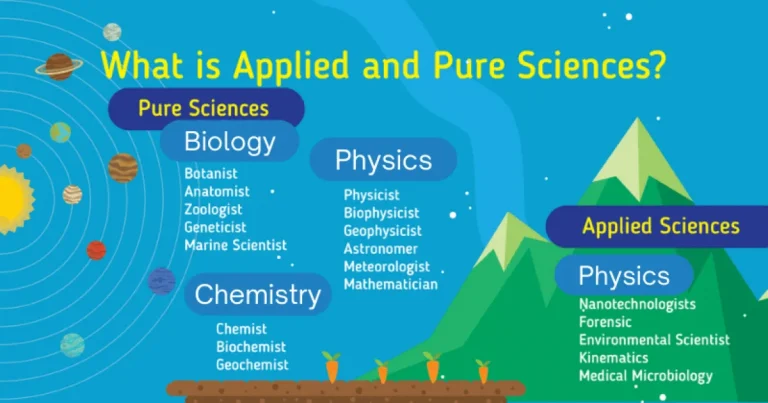Is Science A Proper Noun?
While we often refer to ‘science’ in a general sense, some style guides argue it should be capitalized as a proper noun – Science. If you’re short on time, here’s the quick take: When referring to the overall human endeavor of systematic study of the natural world, science is best understood as a common noun.
However, Science can be considered a proper noun when referencing the academic discipline or community of Science.
In this detailed article, we’ll unpack the grammatical and philosophical nuances in capitalizing science. We’ll look at contexts where science functions as a common noun versus a proper noun. We’ll examine the arguments made by style guides and linguists on both sides of the debate.
And we’ll consider the implications of when and how we capitalize this complex term.
Common Noun Uses of ‘Science’
Referring to Methods or General Knowledge
While ‘Science’ is often used as a proper noun to refer to the scientific community or the body of knowledge produced by scientific research, it can also be used as a common noun to refer to the methods and general knowledge associated with scientific inquiry.
In this sense, ‘science’ is used to describe the systematic study of the natural world, utilizing observation, experimentation, and analysis to generate knowledge and understanding.
For example, when someone says “I love science,” they are not referring to a specific discipline or field but rather expressing a fascination and appreciation for the scientific method and the pursuit of knowledge through empirical evidence.
Similarly, when a teacher encourages their students to think scientifically, they are encouraging them to approach problems and questions with curiosity, skepticism, and a commitment to evidence-based reasoning.
With Modifying Adjectives Like ‘Political’ or ‘Social’
‘Science’ can also be used as a common noun when modified by adjectives that specify a particular aspect or application of scientific inquiry. For instance, phrases like ‘political science’ or ‘social science’ are used to describe specific branches of knowledge that employ scientific methods to study political systems or social behavior, respectively.
Political science focuses on the study of government, political systems, and political behavior, while social science encompasses disciplines such as sociology, psychology, anthropology, and economics that examine various aspects of human society and behavior.
These fields apply scientific principles and methodologies to understand and explain social phenomena.
It is worth noting that while these disciplines are commonly referred to as ‘sciences’, they do differ from the natural sciences, such as physics or biology, which study the physical and natural world.
Despite these differences, they share a commitment to rigorous and systematic inquiry, employing scientific methods to uncover knowledge and insights.
For more information on the different branches of science, you can visit National Geographic’s Encyclopedia.
Proper Noun Uses of ‘Science’
Referring to Academic Discipline or Community
When ‘Science’ is used as a proper noun, it typically refers to the academic discipline or community of scientists. It represents the systematic study of the natural world through observation, experimentation, and analysis.
Science encompasses various branches such as physics, chemistry, biology, and astronomy. Scientists use the scientific method to explore and explain phenomena, making valuable contributions to society’s understanding of the world.
For example, when someone says, “I love Science,” they are expressing their enthusiasm for the field as a whole. Similarly, when discussing advancements in Science, one might refer to breakthroughs in medicine, environmental research, or space exploration.
The proper noun usage of ‘Science’ highlights the collective efforts and achievements of scientists worldwide.
In Publication Titles or University Departments
‘Science’ is also used as a proper noun in publication titles or university departments. Many academic journals and magazines have ‘Science’ in their titles, such as “Science Magazine” or “Advances in Science.”
These publications focus on disseminating scientific research and discoveries to the wider community.
Furthermore, universities often establish departments dedicated to specific scientific disciplines. These departments may have names like “Department of Computer Science” or “School of Environmental Science.”
By using ‘Science’ as a proper noun in these contexts, institutions emphasize their commitment to advancing knowledge and fostering scientific innovation.
For a comprehensive list of scientific journals and publications, you can visit https://www.scimagojr.com/journalrank.php?area=1000. This website provides rankings and metrics for scientific journals, allowing researchers to assess the impact and prestige of different publications.
Linguistic and Philosophical Considerations
Connotations of Capitalization
When it comes to the capitalization of words, including the word “science,” there are both linguistic and philosophical considerations. The decision to capitalize or not capitalize a word has implications for how it is understood and interpreted.
In the case of “science,” capitalizing it gives it a sense of importance and distinction, almost elevating it to the status of a proper noun. This can convey the idea that science is a specific field of study with its own set of principles and methodologies.
Mass vs. Count Nouns
In terms of grammar, “science” is typically treated as a mass noun rather than a count noun. Mass nouns, also known as noncount nouns, refer to things that cannot be easily counted or divided into discrete units. Examples of other mass nouns include “water,” “knowledge,” and “furniture.”
Treating “science” as a count noun would imply that there are multiple sciences, each with its own distinct characteristics. However, it is more common to use the term “sciences” when referring to different scientific disciplines.
Abstract Concepts vs. Proper Entities
From a philosophical perspective, the question of whether “science” is a proper noun depends on how one defines proper nouns. Proper nouns typically refer to specific individuals, places, or things, such as “John,” “London,” or “Mount Everest.” They are used to denote unique entities.
While “science” is not a person, a location, or a physical object, it can be argued that it represents a unique concept or system of knowledge. It is an abstract entity that encompasses various scientific disciplines and methodologies.
According to the Merriam-Webster dictionary, proper nouns are “names of persons or organizations” or “names of particular things.” By this definition, “science” may not fit the traditional mold of a proper noun, as it does not refer to a specific person, organization, or thing.
However, it is worth noting that language is fluid and subject to change over time, and the classification of words can also evolve. Different style guides and dictionaries may have varying guidelines regarding the capitalization of “science” and other similar terms.
Ultimately, whether “science” is considered a proper noun or not may depend on the context in which it is used and the conventions followed by a particular linguistic community or discipline. What is clear, however, is that science plays a crucial role in advancing human knowledge and understanding of the world around us.
Positions Taken by Style Guides
Arguments for Capitalizing Science
Some style guides argue that “Science” should be capitalized because it represents a specific body of knowledge and a field of study. According to these guides, capitalizing Science emphasizes its importance and distinguishes it from other areas of knowledge.
The argument is that since Science is a highly specialized and rigorous discipline, it deserves the same treatment as other proper nouns like History or Mathematics. However, it is important to note that not all style guides agree on this capitalization rule.
For example, the Chicago Manual of Style suggests that scientific disciplines, such as Chemistry or Biology, should be capitalized, but the word “science” itself should be written in lowercase when used as a general term.
This approach allows for the distinction between the field of study and the broader concept of science as a methodological approach to understanding the natural world.
Arguments for ‘science’ as a Common Noun
On the other hand, some style guides argue that “science” should be treated as a common noun and not capitalized. The rationale behind this argument is that science is not a specific entity or a proper noun, but rather a general concept that encompasses various scientific disciplines.
By treating “science” as a common noun, it is aligned with other common nouns like “biology” or “physics.”
The APA Style, for example, advocates for the lowercase form of “science” when used in a general sense. The argument is that capitalizing the term may create confusion and lead to inconsistency in writing, as science is not the only field of study that follows a rigorous methodology.
Applicable Rules and Exceptions
When it comes to capitalizing “science,” it is important to consider the specific context and the rules set by the style guide being followed. Different style guides may have different recommendations, and it is crucial to follow the guidelines established by the respective publication or organization.
Additionally, there might be exceptions to the general rule. For instance, if “science” is used as part of a proper noun or a specific organization’s name, it may be capitalized. However, it is important to use discretion and ensure that the capitalization aligns with the established conventions and guidelines.
Implications and Usage Recommendations
Consistency Within a Text
When it comes to using “science” as a proper noun, consistency within a text is crucial. In order to maintain clarity and avoid confusion, it is recommended to treat “science” as a common noun throughout the entire document.
This means that it should not be capitalized unless it appears at the beginning of a sentence or as part of a proper noun such as “Science Magazine” or “National Science Foundation.” By consistently treating “science” as a common noun, the reader can easily distinguish it from other proper nouns and understand its general meaning.
Considering Context and Connotations
The usage of “science” as a proper noun can vary depending on the context and the connotations associated with it. For example, in a scientific research paper, “science” is often used as a common noun to refer to the systematic study of the natural world.
However, in a philosophical or sociological discussion, “Science” may be used as a proper noun to denote a specific branch of knowledge or a particular scientific method. It is important to consider the intended meaning and the implications of using “science” as a proper noun in order to convey the intended message accurately.
The Evolving English Language
The English language is constantly evolving, and its usage rules are subject to change. While “science” is traditionally treated as a common noun, there may be instances where it is used as a proper noun in contemporary usage.
It is important to stay updated with the latest language trends and style guides to ensure accurate and effective communication. Consulting reputable language resources such as the Merriam-Webster or the Oxford Dictionaries can provide valuable insights into the current usage and conventions surrounding the term “science.”
Conclusion
While subtle, the choice to capitalize science or not can shape readers’ perceptions and carry unintended meanings. Understanding the nuances allows writers to make thoughtful styling choices based on context.
When referring to science as a broad human endeavor, the lowercased form is often most accurate. But in contexts highlighting science as an institutionalized field, the proper noun Science may be appropriate and called for.







